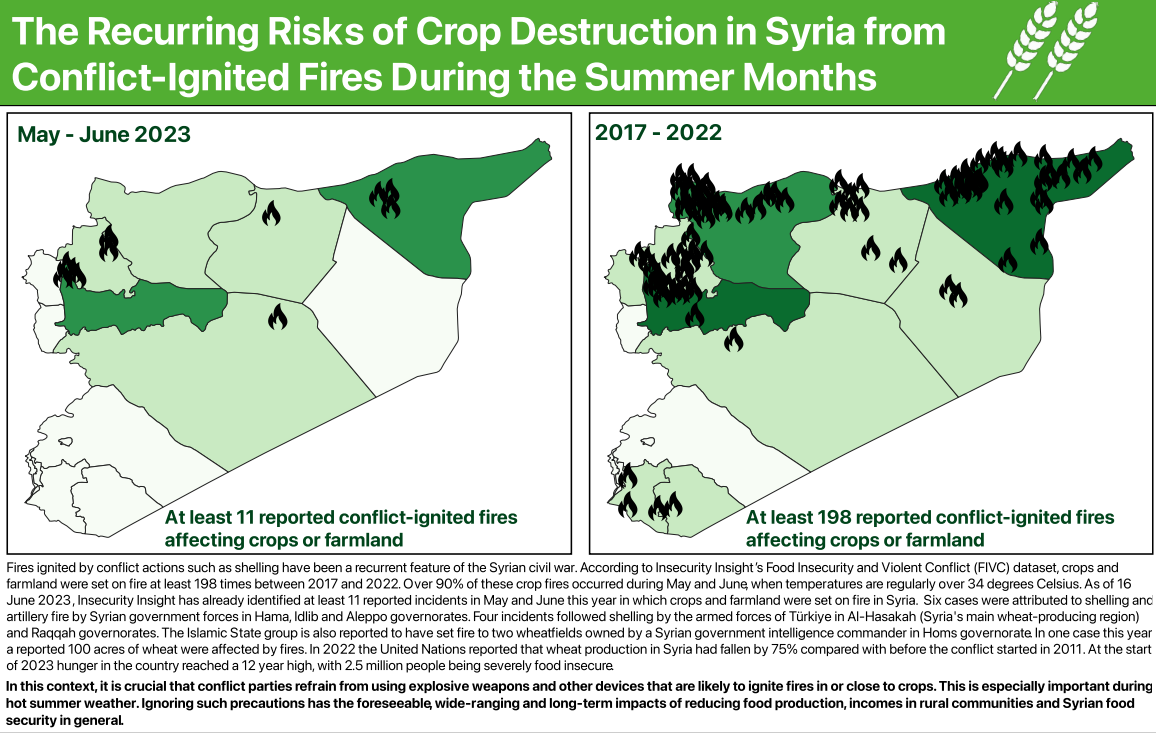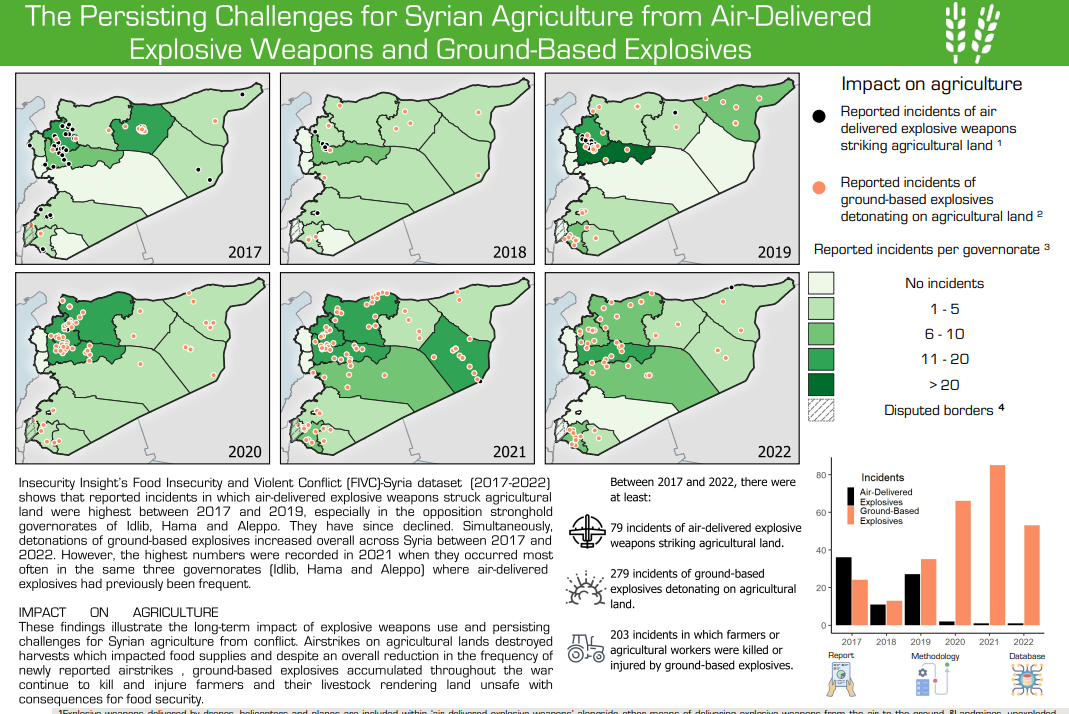- Home
- About us
- Press Releases
- Projects
- SIIM
- Security Incident Information Management (SIIM) (EN)
- Security Incident Information Management (SIIM) FR
- Security Incident Information Management (SIIM) (ES)
- Security Incident Information Management (SIIM) AR
- SIIM in NGO Security Collaboration
- Toolkit: Evidence that Protects Health Care
- Support for Advocacy
- Mobile Guides and Podcasts
- Mobile guides on security
- Research partnership
- Concept development
- Information
- Country Pages
Syria
The destruction of lives and infrastructure by violent conflict since 2011 combined with earthquakes, disease outbreaks and the impact of climate change combine to make Syria’s humanitarian needs among the greatest worldwide.
Aid worker arrested in Aleppo governorate
As reported on 12 February 2024: Between Afrin and Azaz districts, Aleppo governorate, a female aid worker from the LNGO Bahar was arrested by anti-terrorism forces on charges of dealing with the former autonomous administration. Source: SOHR. Return to Syria home page. more
Previous stories:
Reports
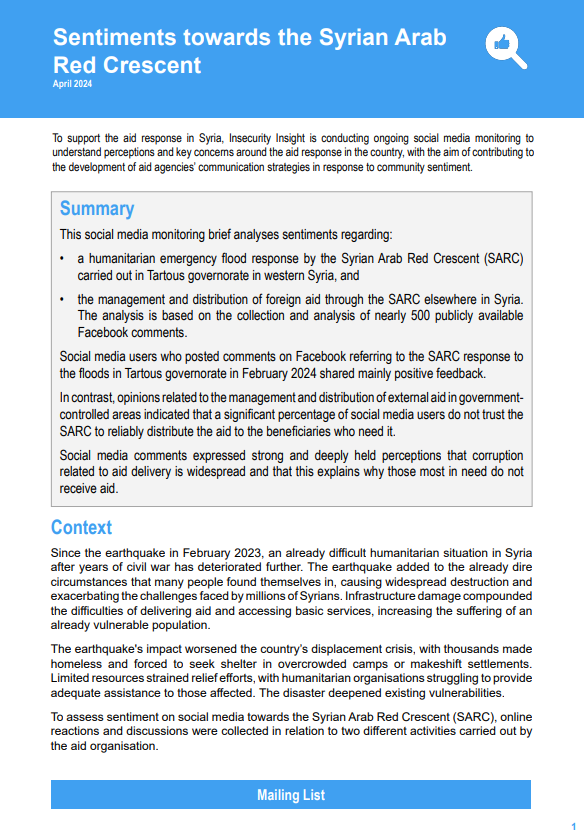
Sentiments towards the SARC
April 2024
Social Media Monitoring
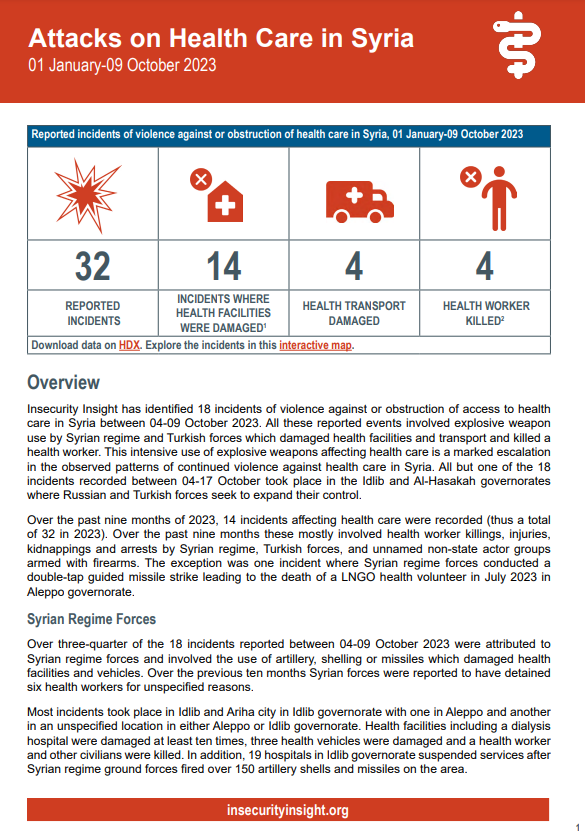
Syria
October 2023
Attacks on Health Care
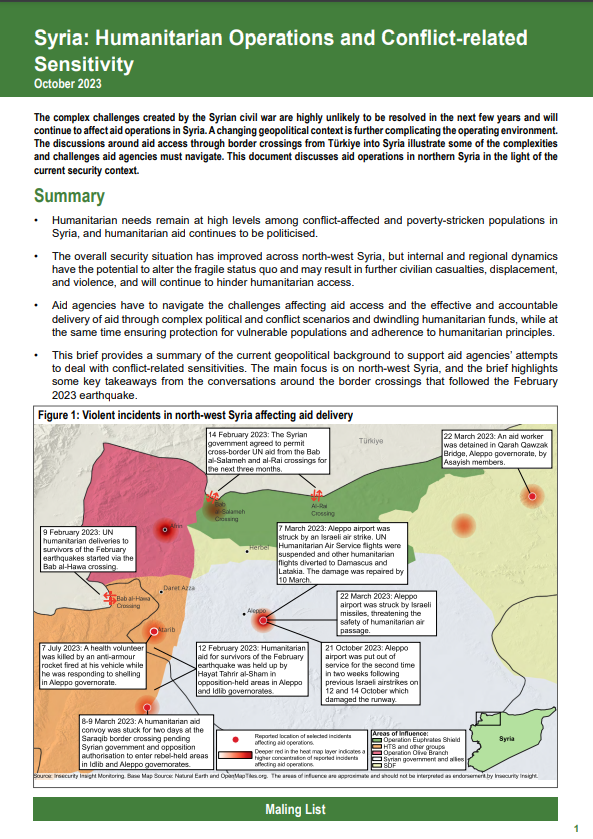
Syria
October 2023
Situation Report
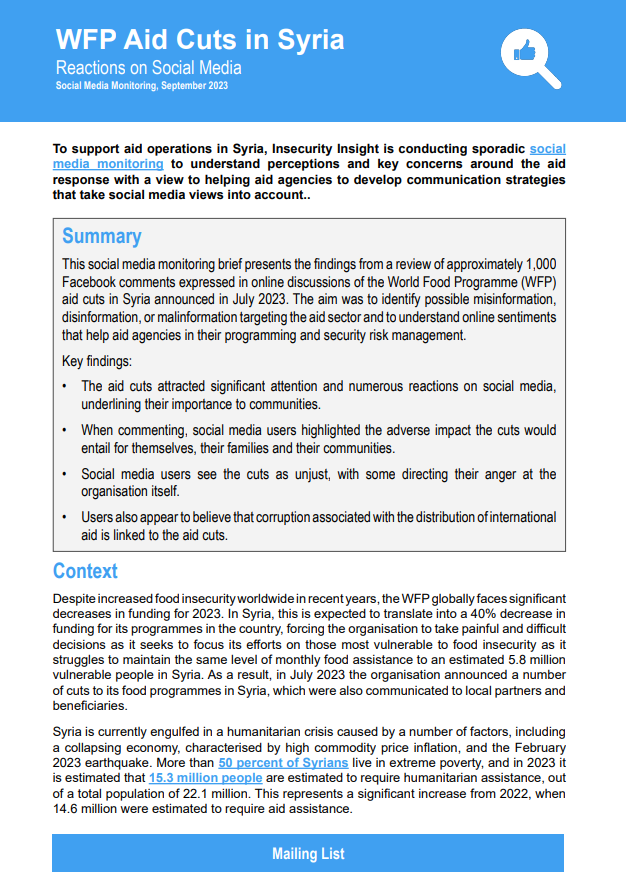
WFP Aid Cuts in Syria
October 2023
Social Media Monitoring
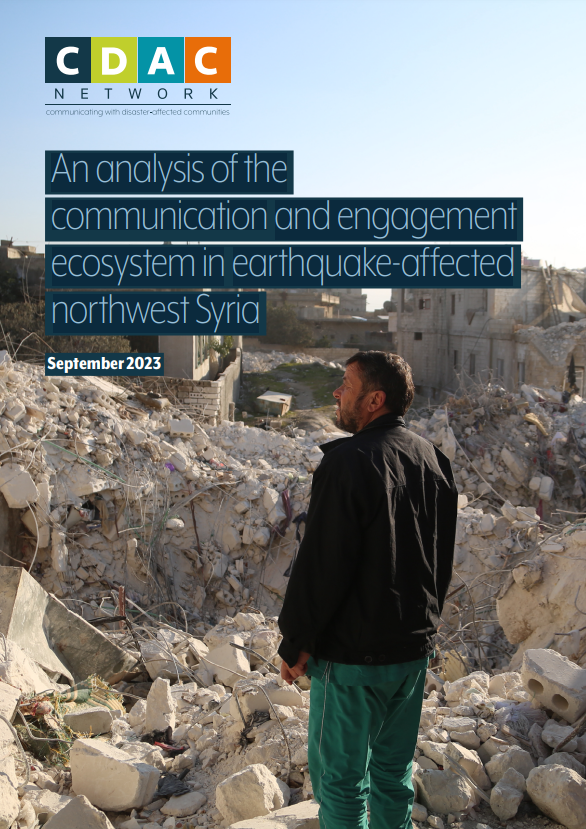
Analysis of the communication and engagement ecosystem in earthquake-affected NW Syria
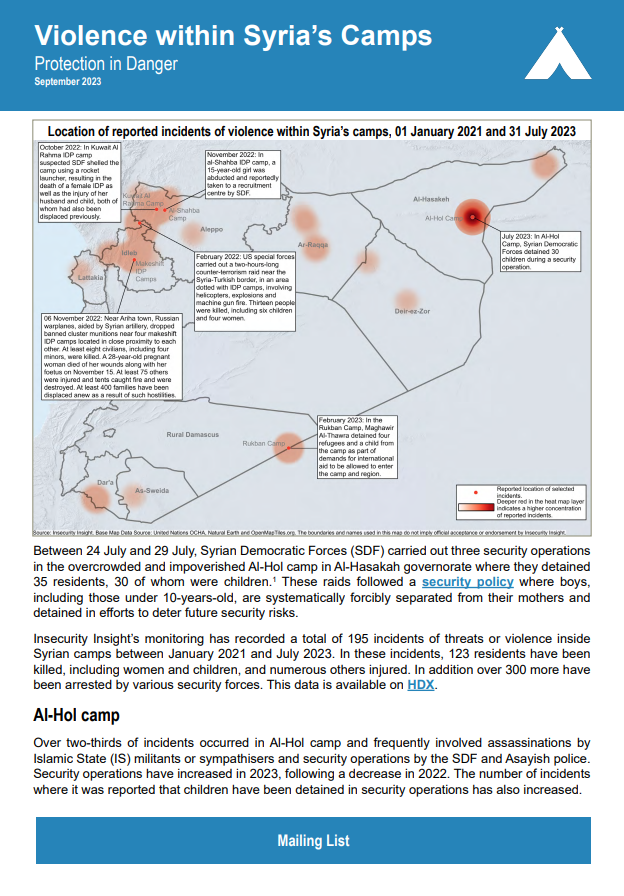
Violence within Syria’s Camps
September 2023
Protection in Danger
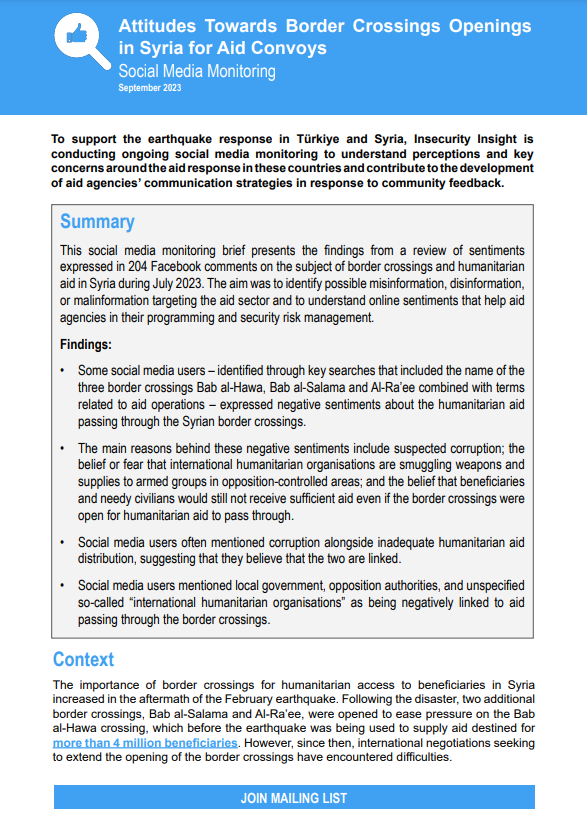
Attitudes Towards Border Crossings Openings in Syria
September 2023
Social Media Monitoring
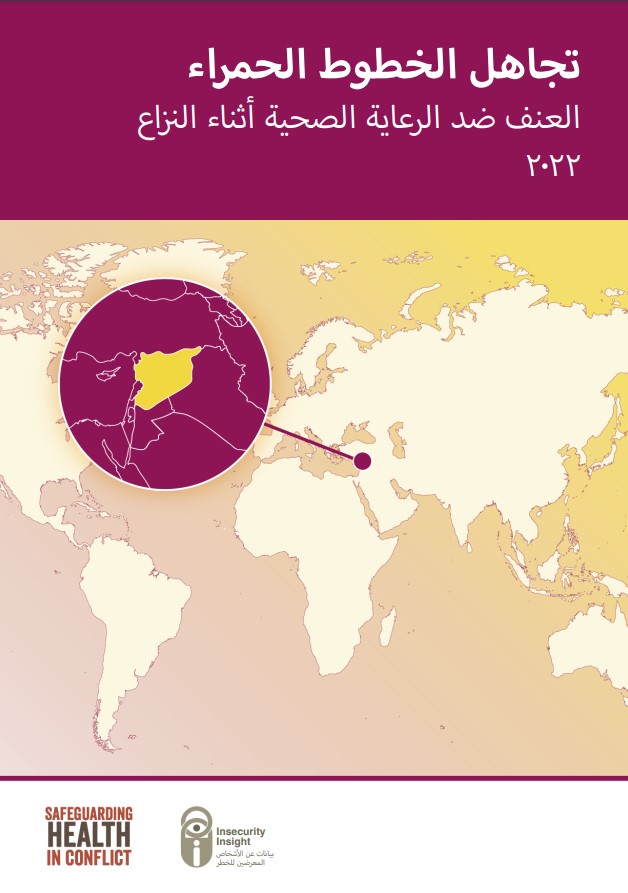
سوريا
مايو 2023
صحيفة وقائع 2022
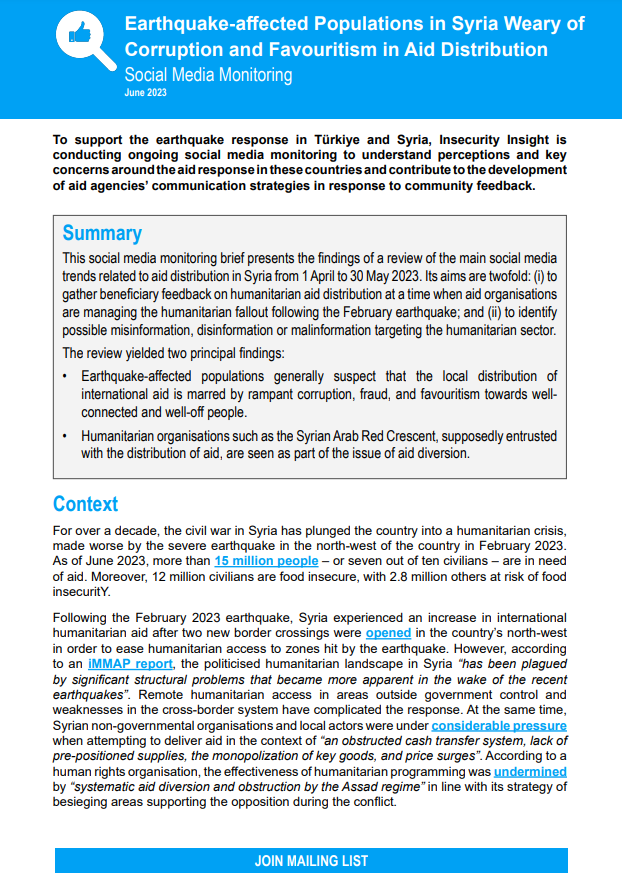
Corruption and Favouritism
June 2023
Social Media Monitoring
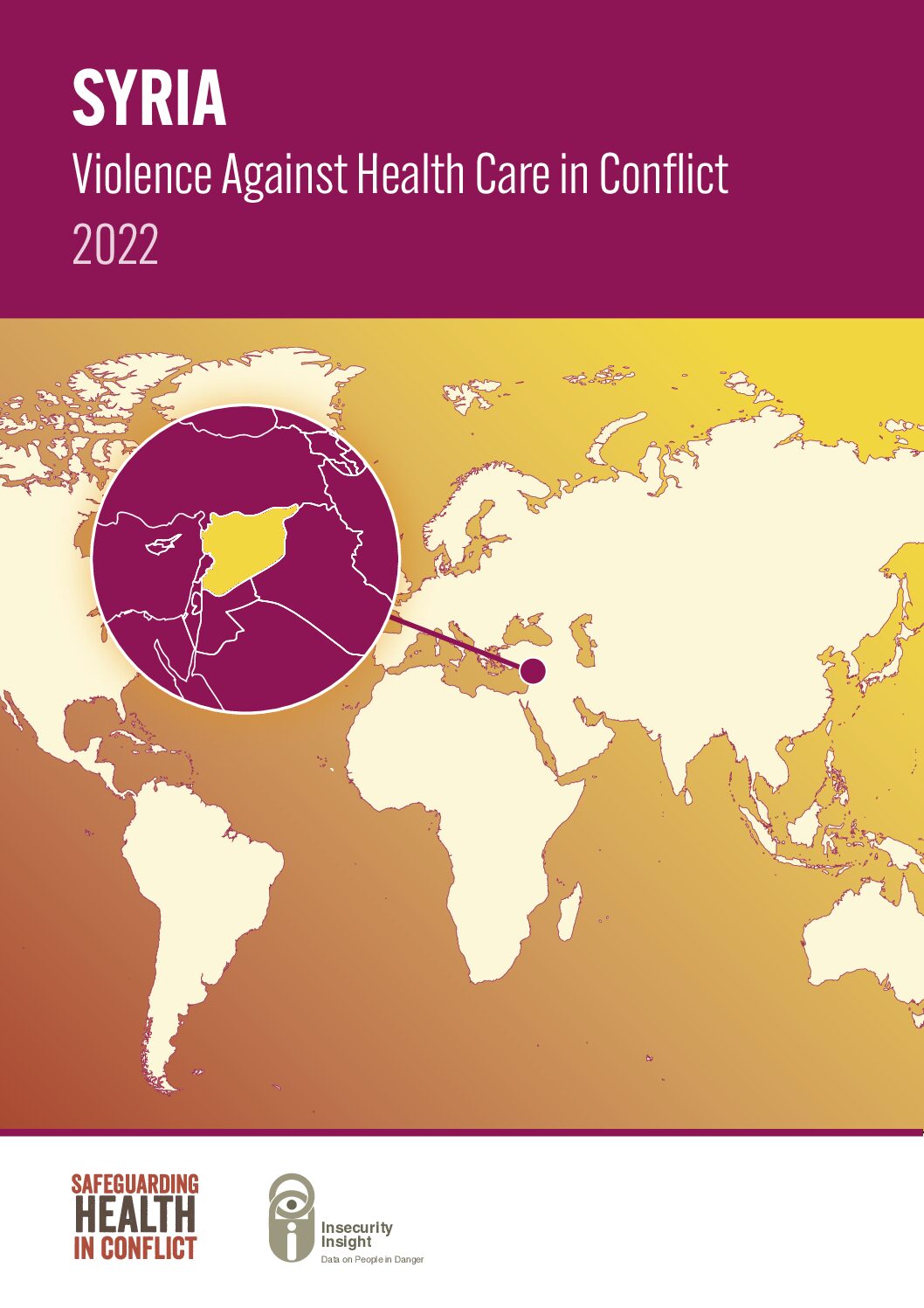
Syria
May 2023
SHCC 2022 Factsheet
Infographics
Conflict and Hunger
Insecurity Insight monitors conflict events affecting food insecurity in Syria as part of its Conflict and Hunger project. Our latest report documents 1,732 incidents recorded between 1 January 2017 and 31 December 2022. They include wide ranging threats to farmers posed by detonations of explosive remnants of war on agricultural and farmland, airstrikes on markets, looting of food and shootings of farmers. The data is available for download on the Humanitarian Data Exchange (HDX) and the report is accessible here.
Social Media Monitoring
Following the H2H Network’s call for proposals to strengthen humanitarian responses to the earthquakes that hit southeast Türkiye and northwest Syria in February 2023, Insecurity Insight monitors social media to support the communications and security risk-management strategies of aid providers on the ground.
Through regular analyses of public social data collected from various social media platforms in Türkiye and Syria, the main objective is to identify false information (including mis-, dis-, and mal- information) targeting aid providers. By highlighting this with aid organisations, Insecurity Insight aims to ensure that harmful online information does not adversely impact programme effectiveness and security.
Insecurity Insight is also employing social data to conduct community perception analyses to assess sentiment towards key international aid organisations among affected communities in Türkiye and northwest Syria. This ensures that, especially in the case of negative sentiment, aid organisations have the possibility of responding to the affected communities’ concerns.
Health Care
2022 Safeguarding Health in Conflict Coalition (SHCC) Factsheet
Based on Insecurity Insight data, the Safeguarding Health in Conflict Coalition (SHCC) identified 42 incidents of violence against or obstruction of access to health care in Syria in 2022, compared to 82 incidents in 2021. In these incidents, at least 19 health workers were arrested and 10 others killed, impacting health care providers’ ability to maintain safe staffing levels. Health facilities were damaged at least 11 times, impacting the population’s access to health care. The full chapter can be read here and the data is available for download here.
Our Global Interactive Map on Threats and Violence against Health Care provides access to continuously updated information on violence against health care in conflict and related to COVID-19.
